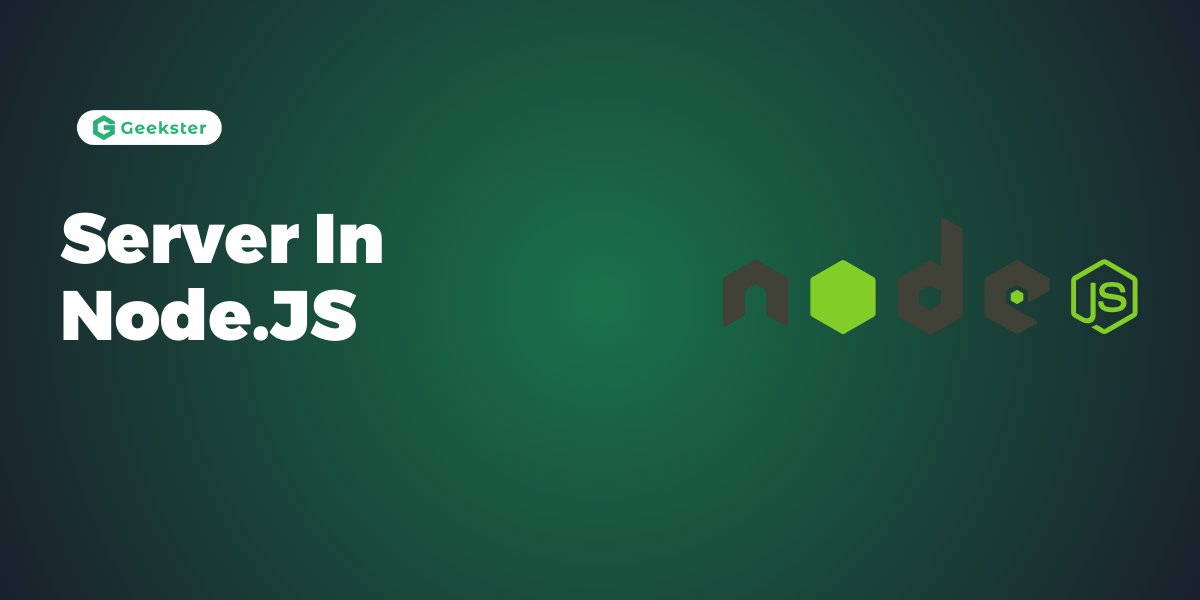What is Server in Node.JS?
In Node.js, a server, often referred to as ‘Server in Node.js,’ is a computer program or software application that listens for incoming requests from clients (such as web browsers) and responds to those requests by providing data, processing requests, or executing code.Servers in Node.js leverage the event-driven, non-blocking I/O model to handle multiple connections simultaneously, making them well-suited for building real-time, data-intensive applications.
In web development, servers play a pivotal role in facilitating communication between clients and applications. Node.js ecosystem servers are fundamental components that enable developers to build scalable and efficient web applications.
Advantages of Servers in Node.JS
- High Performance: Servers in Node.js are built on the V8 JavaScript engine, known for its speed and efficiency. They can handle concurrent connections efficiently, making Node.js servers suitable for handling large volumes of traffic and delivering high-performance web applications.
- Scalability: Node.js servers are inherently scalable due to their event-driven architecture and non-blocking I/O model. They can handle thousands of concurrent connections with minimal resource consumption, allowing applications to scale seamlessly as traffic grows.
- Developer Productivity: Node.js servers enable full-stack JavaScript development, allowing developers to use the same language (JavaScript) for both client-side and server-side programming. This streamlines the development process, reduces context switching, and enhances developer productivity.
- Rich Ecosystem: Node.js has a rich ecosystem of modules, libraries, and frameworks that simplify server-side development. Frameworks like Express.js provide powerful abstractions and middleware for building robust and feature-rich web servers in Node.js.
- Community Support: Node.js has a vibrant and active community of developers and contributors, providing support, documentation, and resources for building and deploying servers in Node.js. The community fosters collaboration, innovation, and knowledge sharing in the Node.js ecosystem.
Conclusion
In conclusion, servers in Node.js empower developers to build scalable, high-performance web applications with ease. Node.js event-driven, non-blocking servers handle thousands of connections efficiently. They deliver real-time, data-intensive experiences. Node.js drives web development innovation with its rich ecosystem and strong community support.
Frequently Asked Question
In Node.js, a server is a program that listens for incoming requests and responds to them, while a client is a program that initiates requests to servers. Servers handle incoming connections and provide data or services, while clients make requests and consume data or services provided by servers.
Creating a server in Node.js involves using the built-in http or https modules to create an HTTP or HTTPS server. Developers can define request handlers to handle incoming requests and send responses accordingly. Frameworks like Express.js provide higher-level abstractions for building servers in Node.js.
While shared hosting providers typically support server-side technologies like PHP, they may not be optimized for hosting Node.js servers. Dedicated hosting providers, cloud platforms, and PaaS providers offer more suitable hosting options for Node.js servers, providing scalability, performance, and flexibility.

